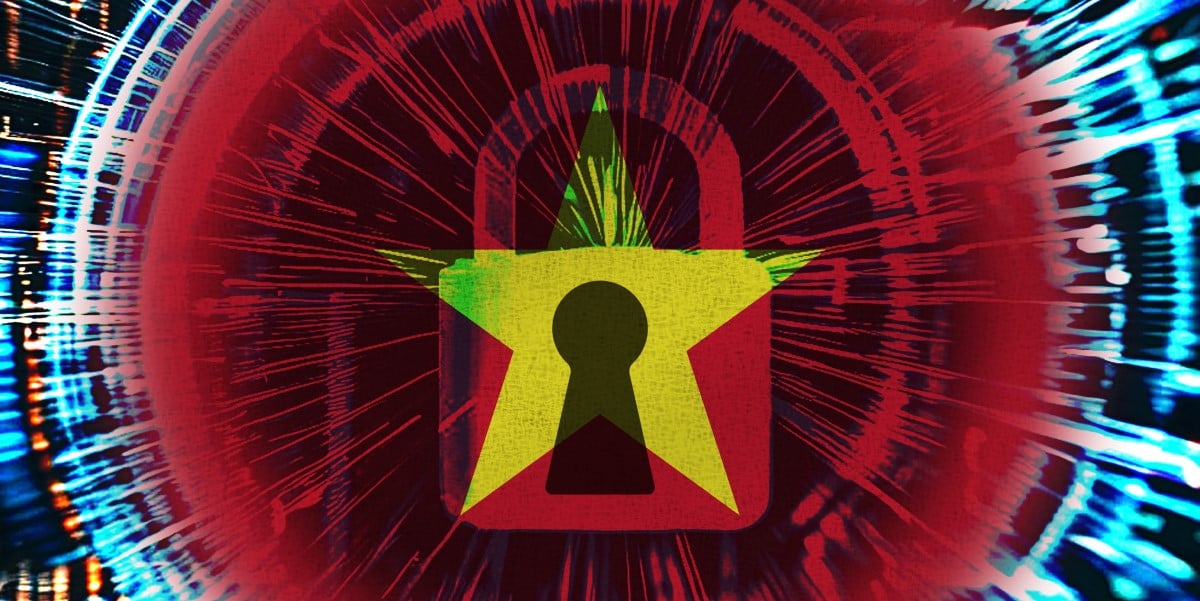Vietnam To Collect Biometrics - Even DNA - For New ID Cards

The Vietnamese government will begin collecting biometric information from its citizens for identification purposes beginning in July this year.
Prime minister Pham Minh Chinh instructed the nation's Ministry of Public Security to collect the data in the form of iris scans, voice samples and actual DNA, in accordance with amendments to Vietnam's Law on Citizen Identification.
The ID cards are issued to anyone over the age of 14 in Vietnam, and are optional for citizens between the ages of 6 and 14, according to a government news report.
Ammendments to the Law on Citizen Identification that allow collection of biometrics passed on November 27 of last year.
The law allows recording of blood type among the DNA-related information that will be contained in a national database to be shared across agencies "to perform their functions and tasks."
The ministry will work with other parts of the government to integrate the identification system into the national database.
As for how the information will be collected, the amendments state:
Vietnam’s future identity cards will incorporate the functions of health insurance cards, social insurance books, driver's licenses, birth certificates, and marriage certificates, as defined by the amendment.
There are approximately 70 million adults in Vietnam as of 2022, making the collection and safeguarding of such data no small feat.
The Reg is sure the personal information on all those citizens will be just fine – personal data held by governments for ID cards certainly never leaks.
- Senate bill aims to stop Uncle Sam using facial recognition at airports
- Japan's digital minister surrenders salary to say sorry for data leaks
- Vietnam becomes latest nation to pitch itself as a chip biz hub
- Guess the company: Takes your DNA, blames you when criminals steal it, can't spot a cyberattack for 5 months
Vietnam’s physical ID cards will change as a result of these measures, While their shape will remain, the wording they bear and issuing agency will change. Cards will be managed henceforth by the Ministry of Public Security instead of the police department. They will also no longer contain fingerprints – but there will be a QR code linked to a mass of identifying data.
Chairman of the National Defense and Security Committee, Le Tan Toi, has expressed the belief that a person's iris is suitable for identification as it does not change over time and would serve as a basis for authenticating an identity.
Local media reported at the time of the amendments that changes were made to reflect trends in digital society management. ®
From Chip War To Cloud War: The Next Frontier In Global Tech Competition
The global chip war, characterized by intense competition among nations and corporations for supremacy in semiconductor ... Read more
The High Stakes Of Tech Regulation: Security Risks And Market Dynamics
The influence of tech giants in the global economy continues to grow, raising crucial questions about how to balance sec... Read more
The Tyranny Of Instagram Interiors: Why It's Time To Break Free From Algorithm-Driven Aesthetics
Instagram has become a dominant force in shaping interior design trends, offering a seemingly endless stream of inspirat... Read more
The Data Crunch In AI: Strategies For Sustainability
Exploring solutions to the imminent exhaustion of internet data for AI training.As the artificial intelligence (AI) indu... Read more
Google Abandons Four-Year Effort To Remove Cookies From Chrome Browser
After four years of dedicated effort, Google has decided to abandon its plan to remove third-party cookies from its Chro... Read more
LinkedIn Embraces AI And Gamification To Drive User Engagement And Revenue
In an effort to tackle slowing revenue growth and enhance user engagement, LinkedIn is turning to artificial intelligenc... Read more

